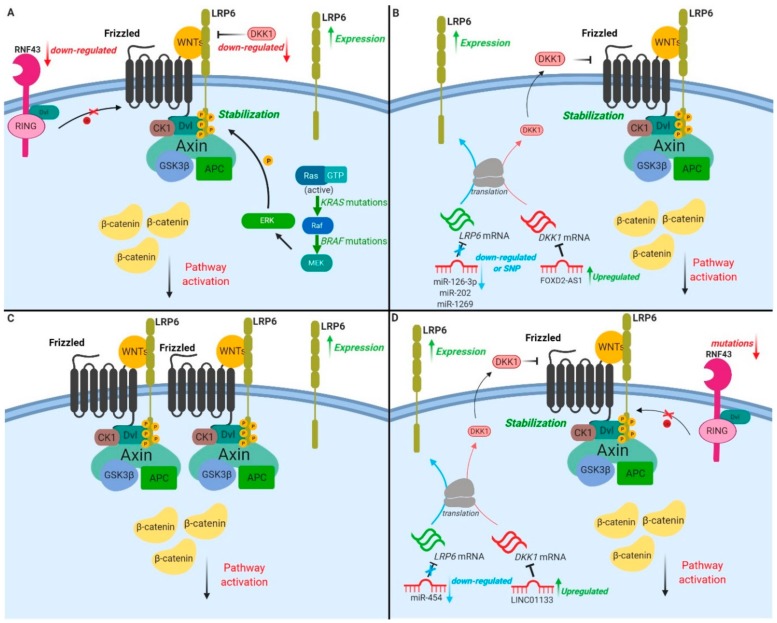Figure 3.
LRP6 and WNT/β-catenin pathway alterations in epithelial cancers. (A) In colorectal cancer (CRC), LRP6 overexpression is observed in 61% of malignant tissues isolated from patients. (i) Mutations in the E3 ubiquitin-protein ligase RNF43, (ii) downregulation of the antagonist DKK1 and (iii) overactivation of the RAS/MAPK pathway result in the recruitment of degradation complex components at the membrane and WNT/β-catenin pathway overactivation. (B) In hepatocellular carcinomas (HCCs), LRP6 is overexpressed in 45%–75% of HCC tumours. Downregulation of miR-126-3p, miR-202 and single-nucleotide polymorphism of miR-1269 result in increased LRP6 mRNA stability and protein levels. The long non-coding RNA FOX2-ASI, upregulated in HCC, targets and downregulates DKK1 mRNA (LRP6 inhibitor), thus increasing LRP6 membrane levels. (C) In breast cancers (BCs), LRP6 overexpression is observed in 20%–36% of carcinomas, and β-catenin nuclear accumulation is reported in 40%–60% of cases. (D) In pancreatic ductal adenocarcinoma (PDAC), (i) mutations of RNF43 are observed in 5%–10% of PDAC patients, (ii) down-regulation of miR-454 and (iii) upregulation of LINC01133—a long non-coding RNA which induces DKK1 promoter methylation (decreasing DKK1 expression)—all explain increased LRP6 expression and subsequent increased β-catenin-dependent signaling.

